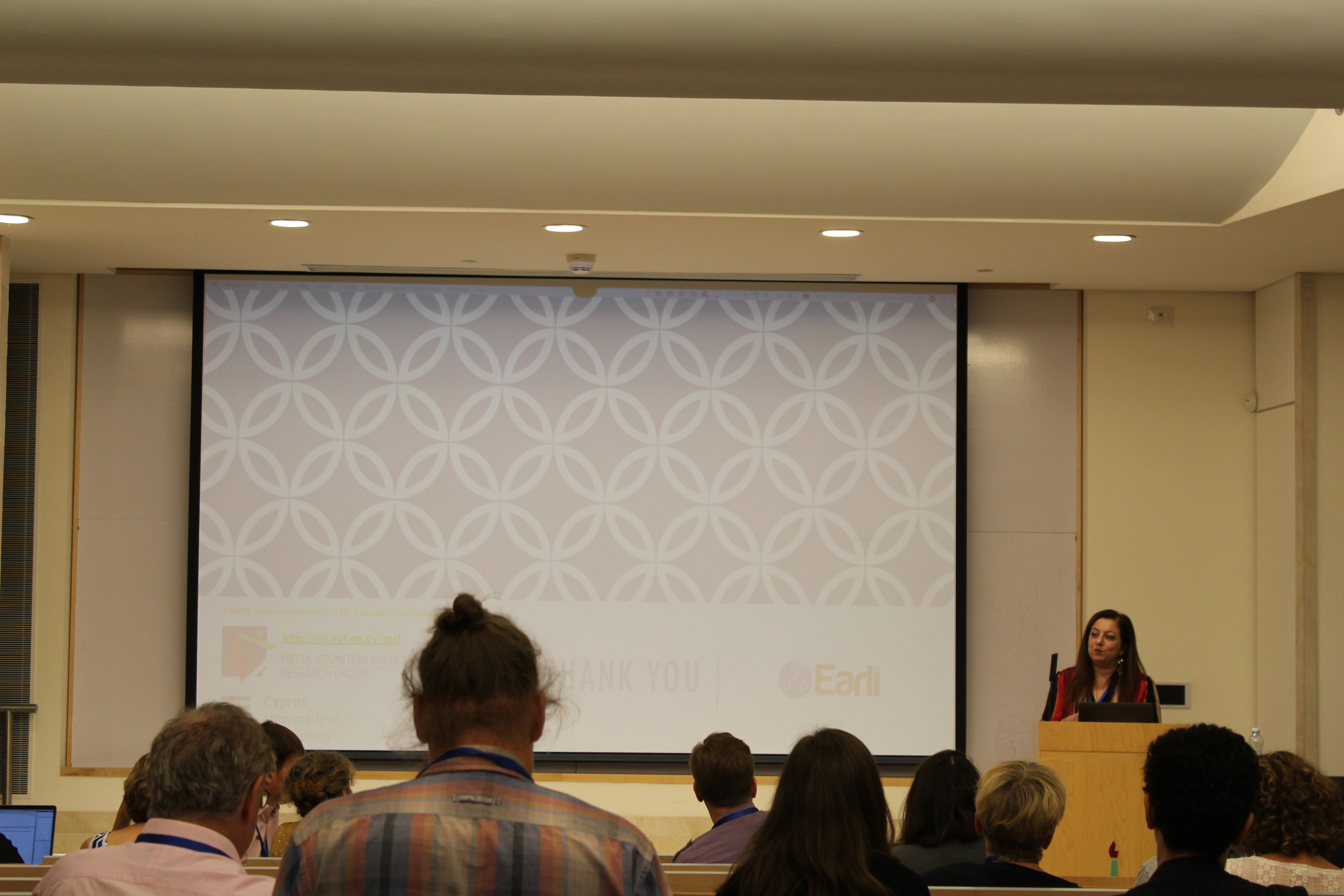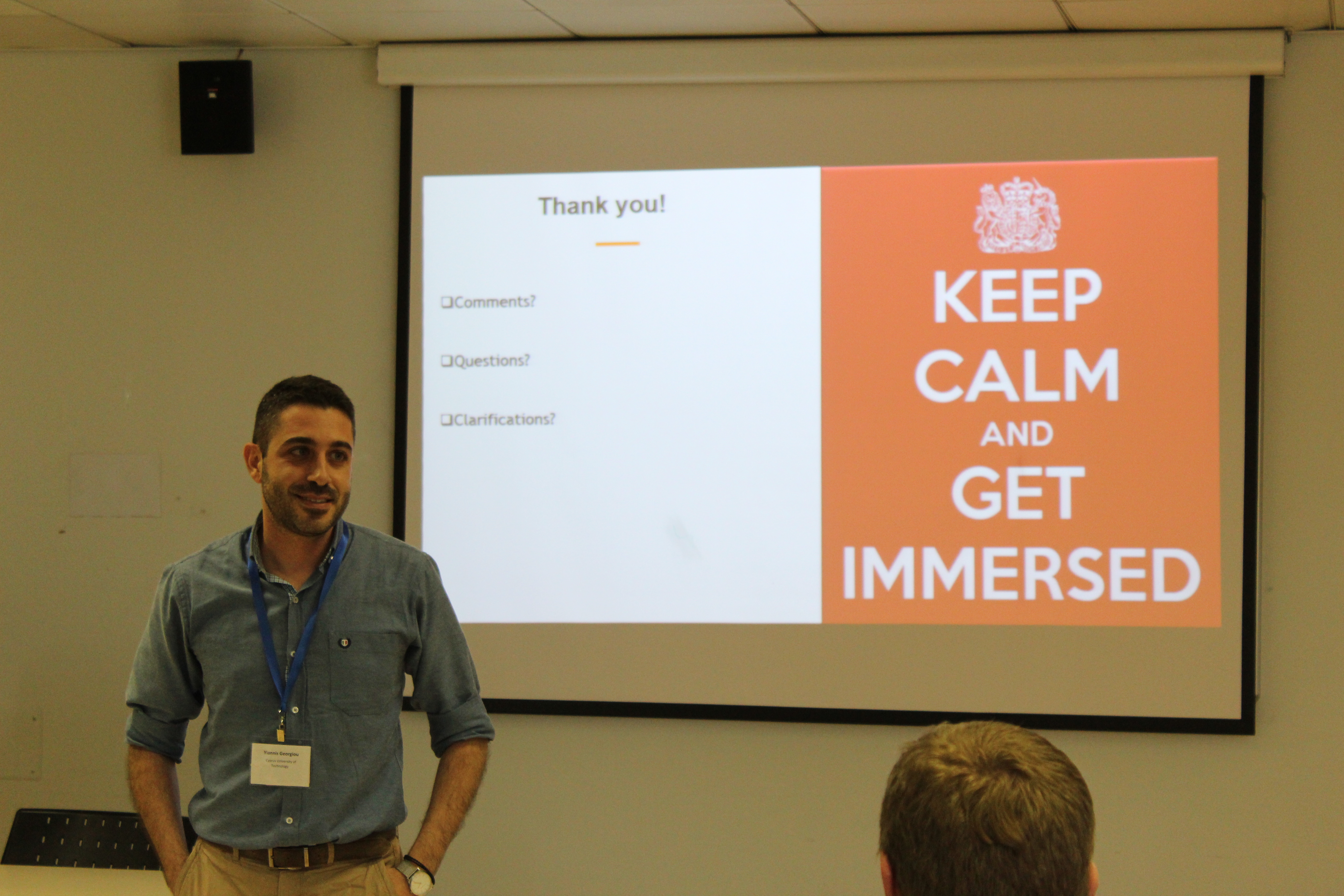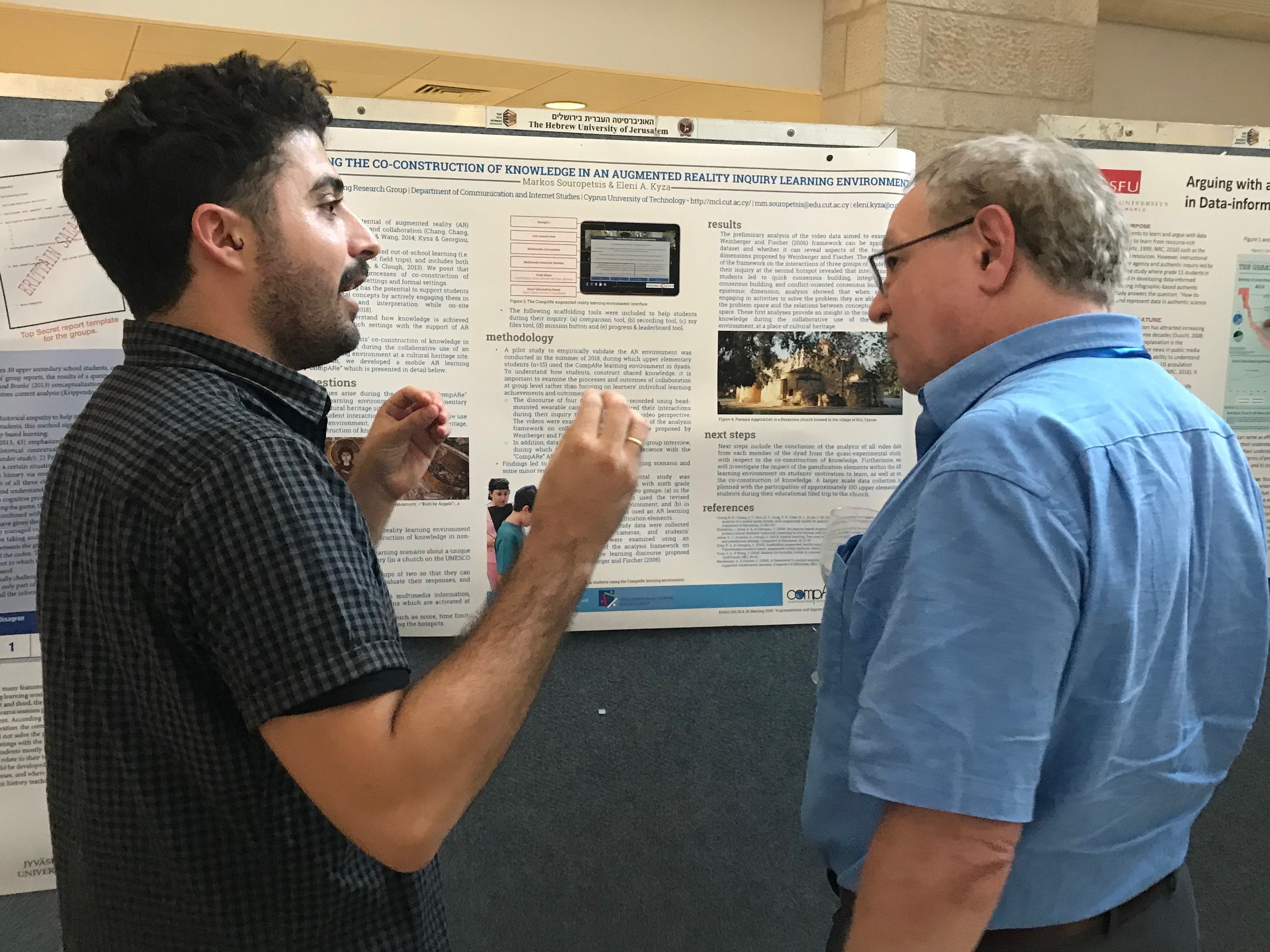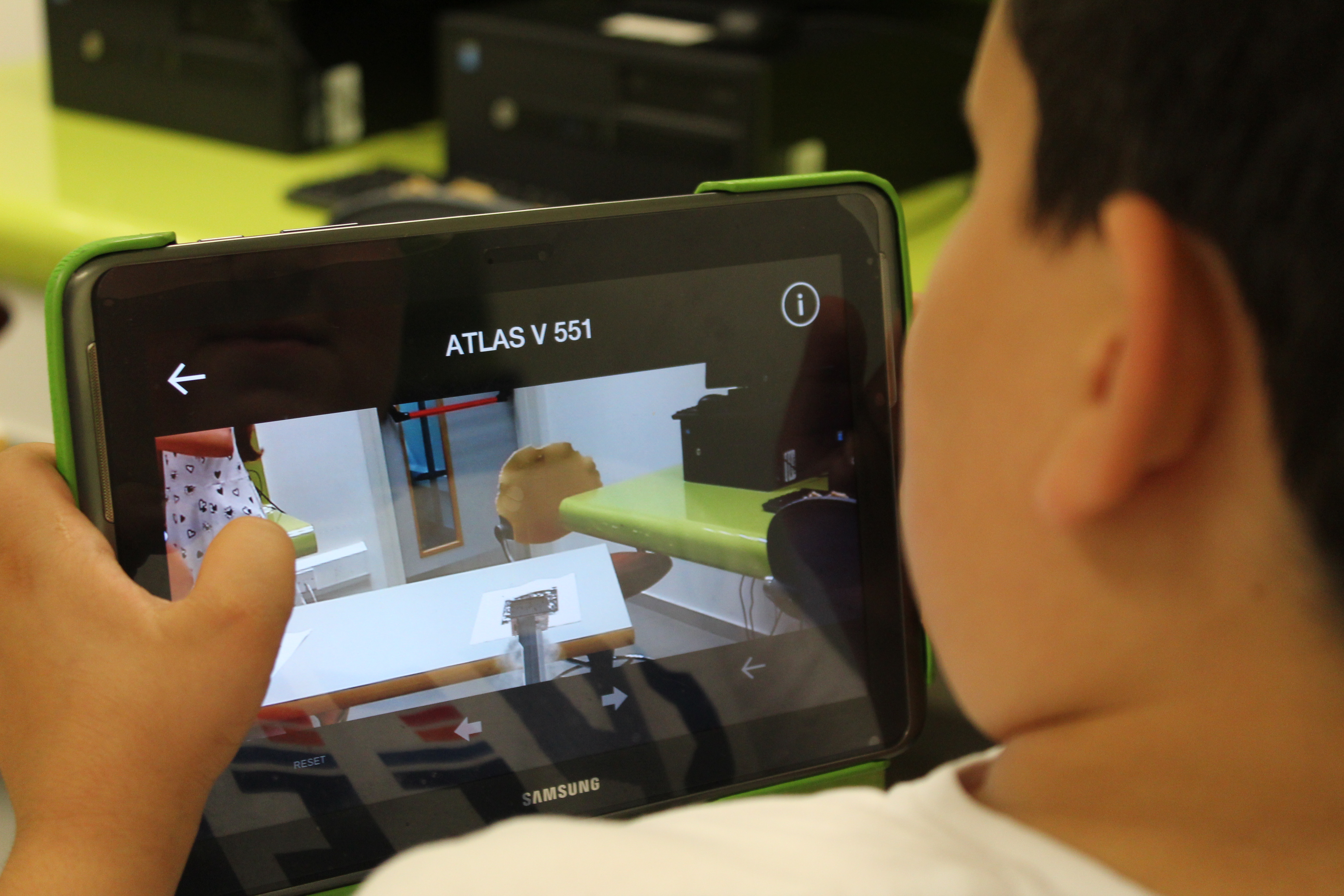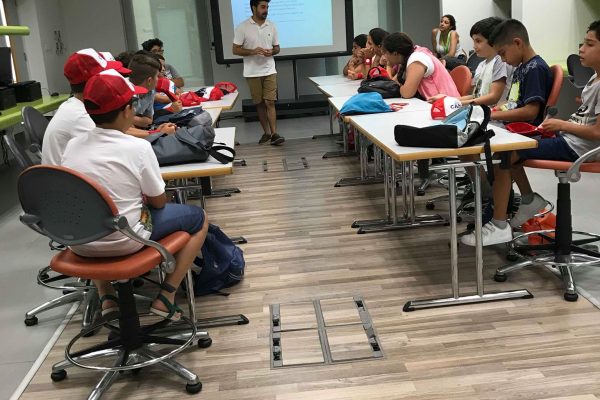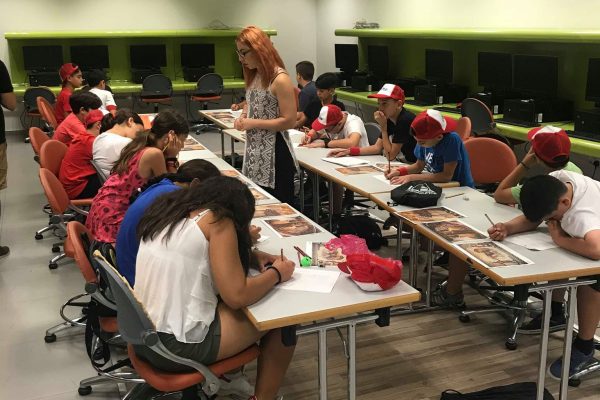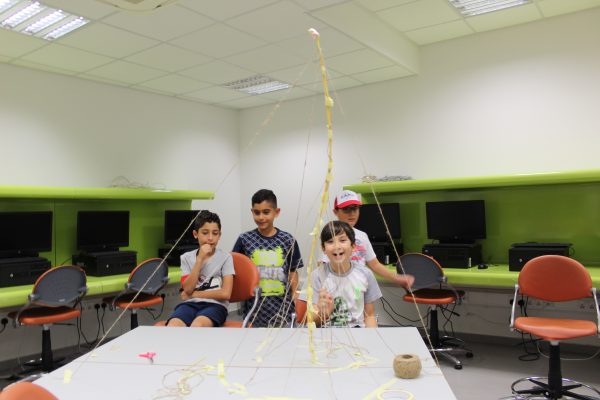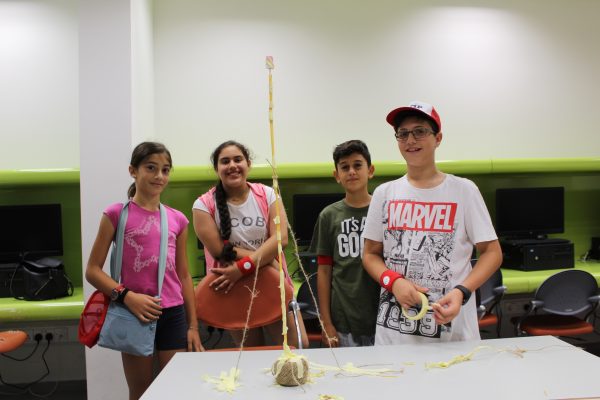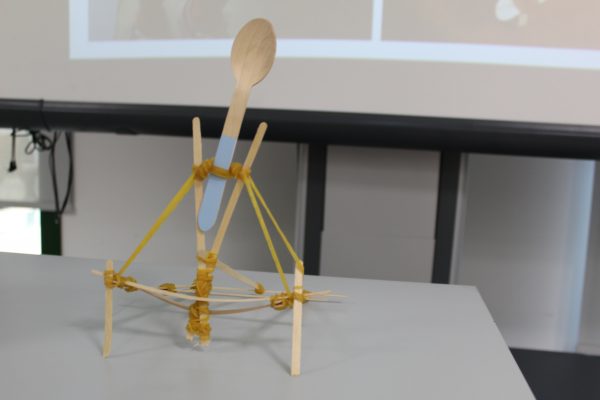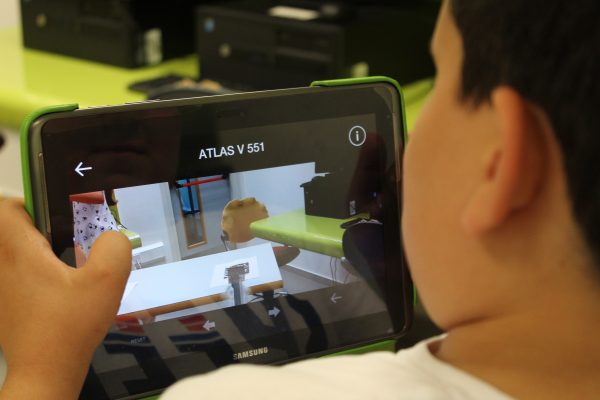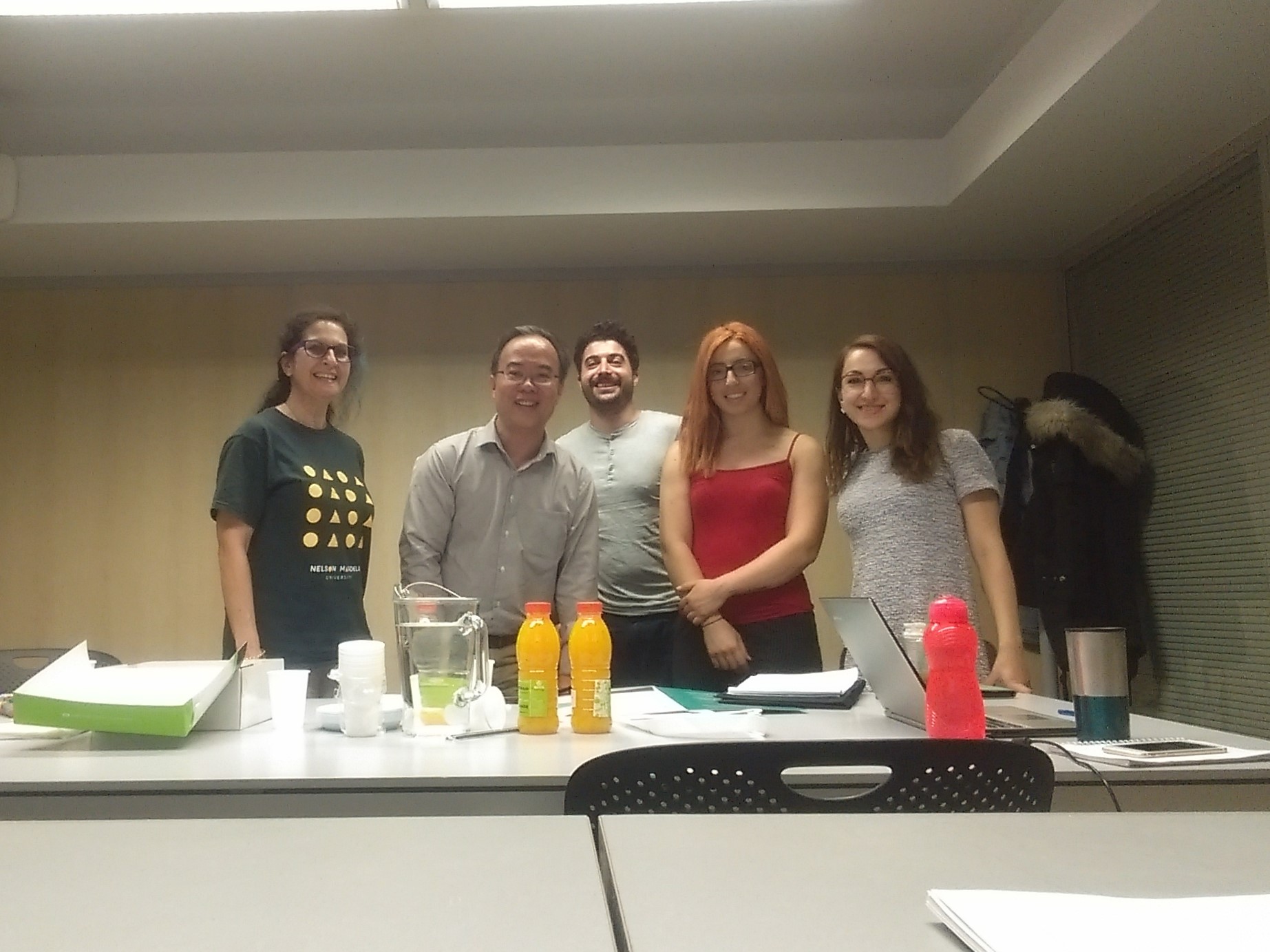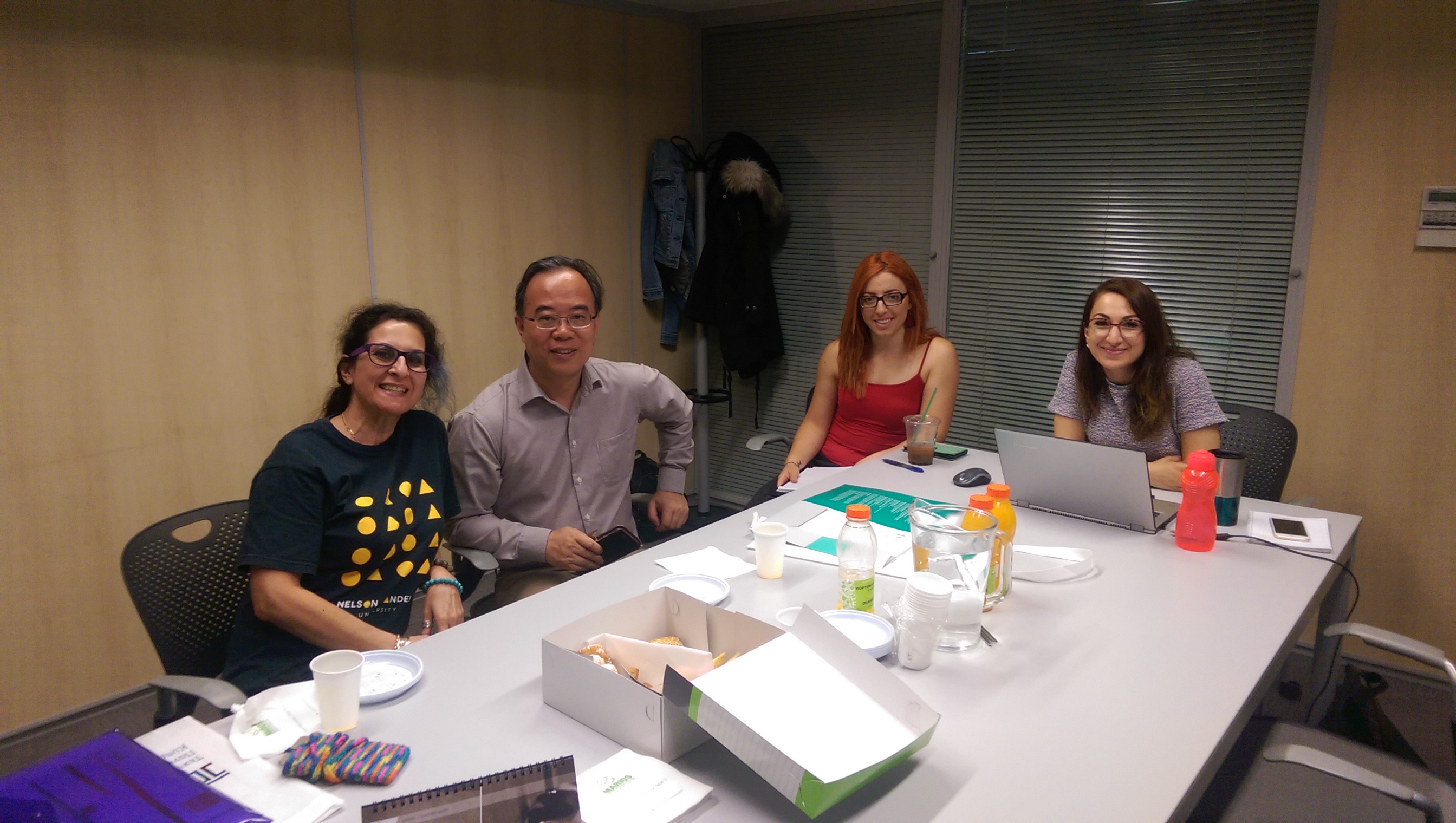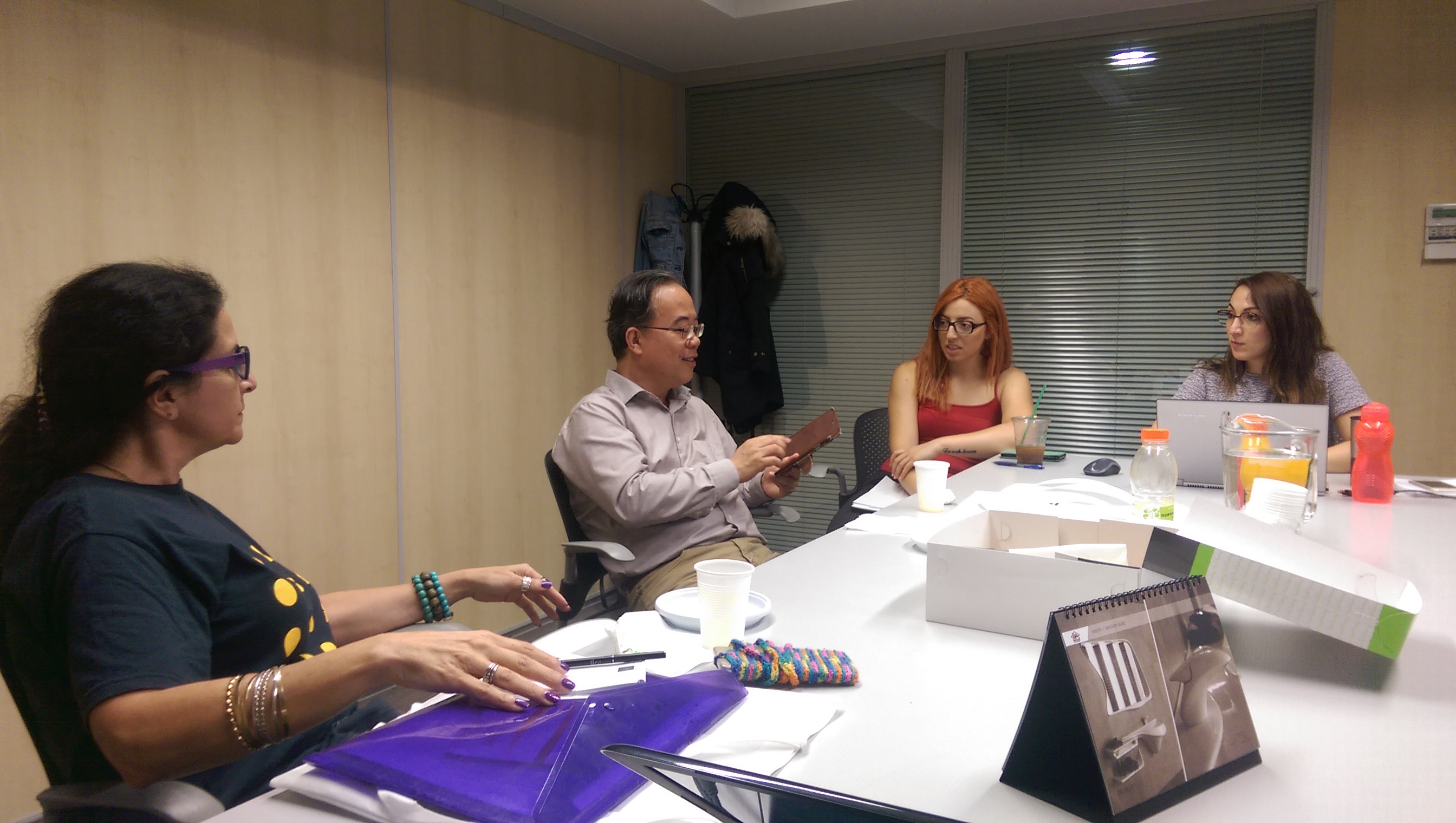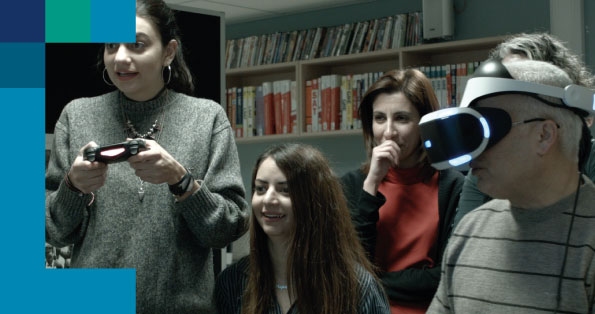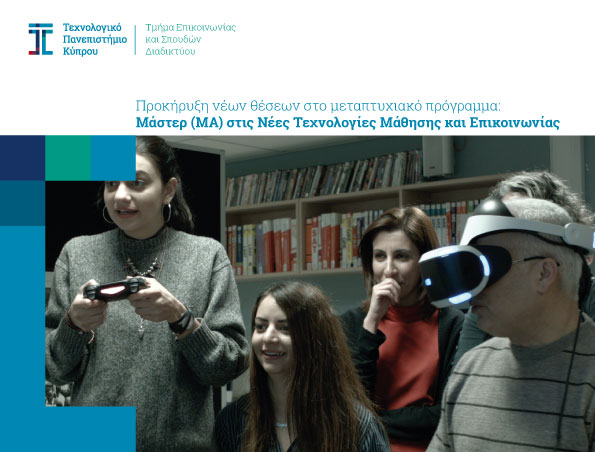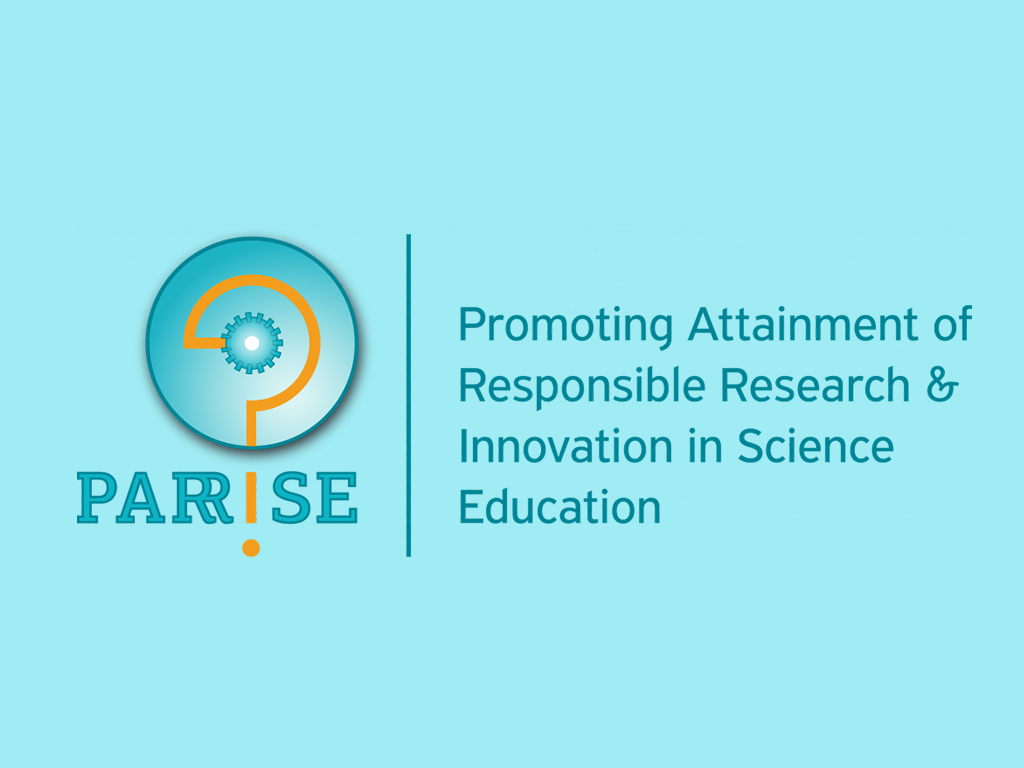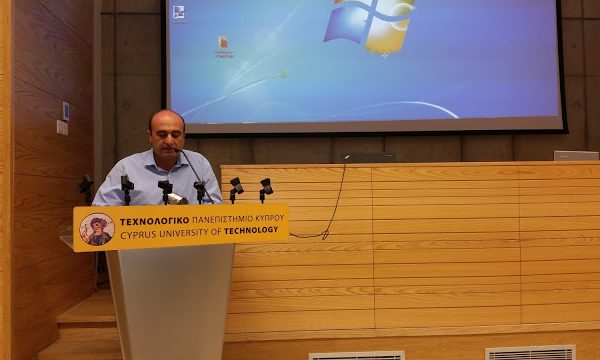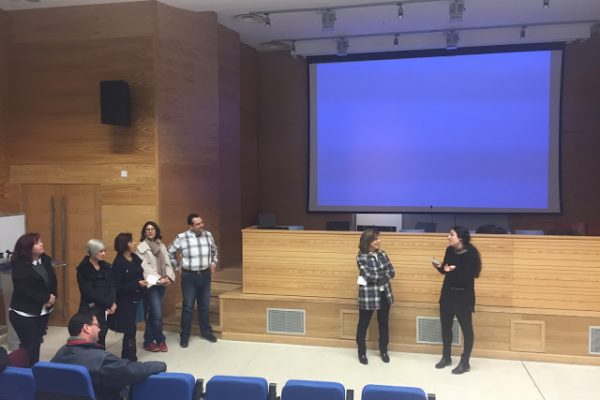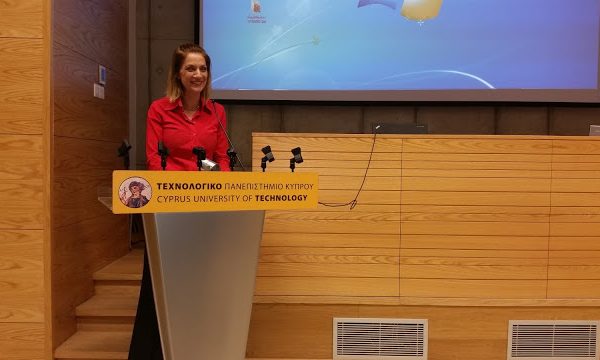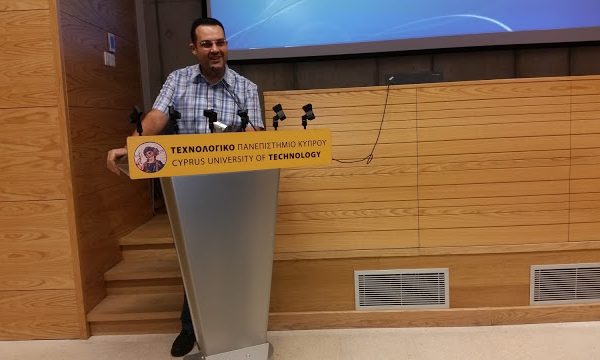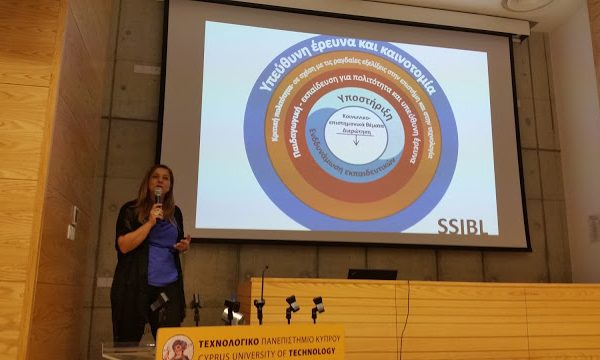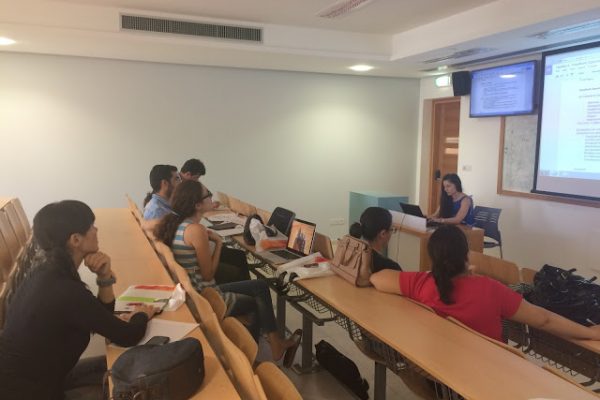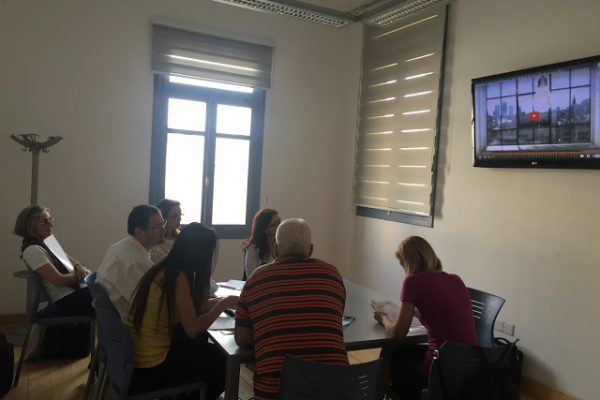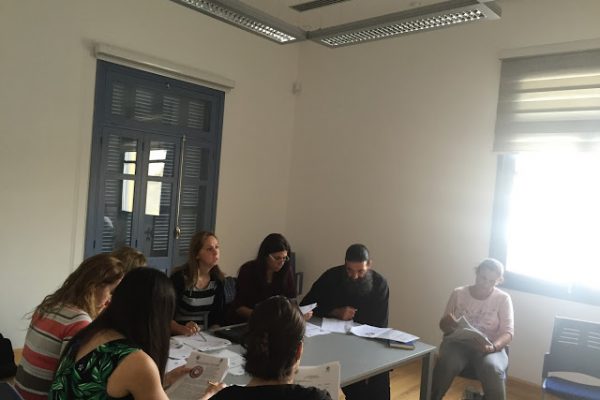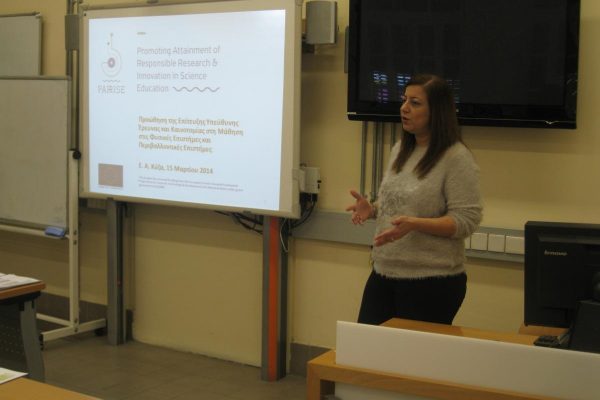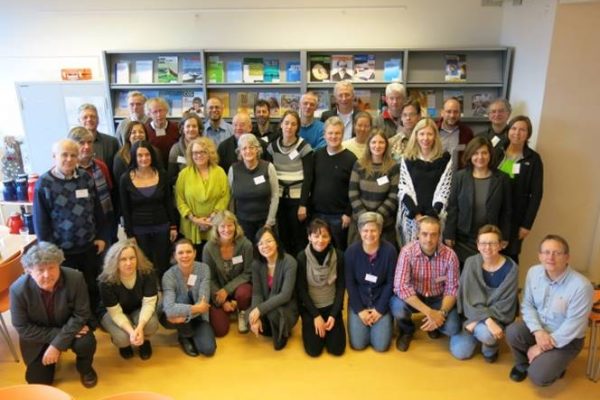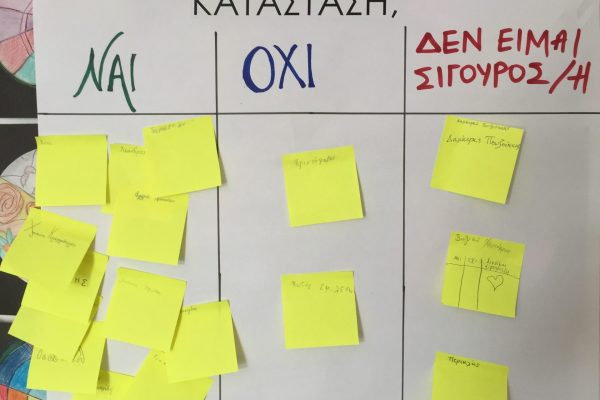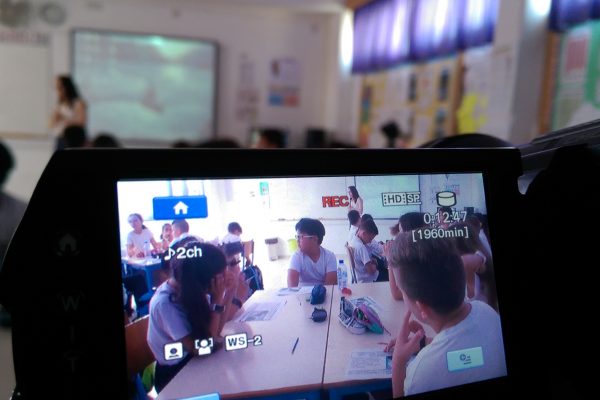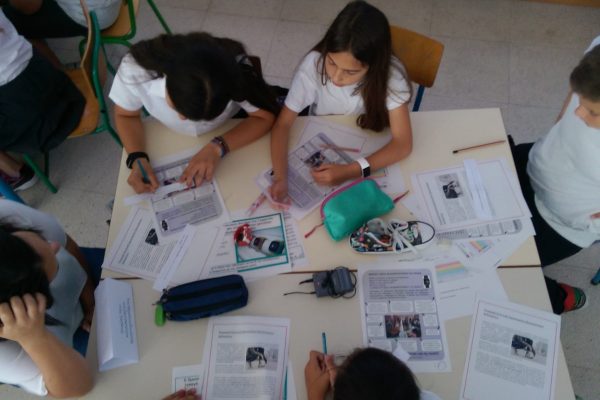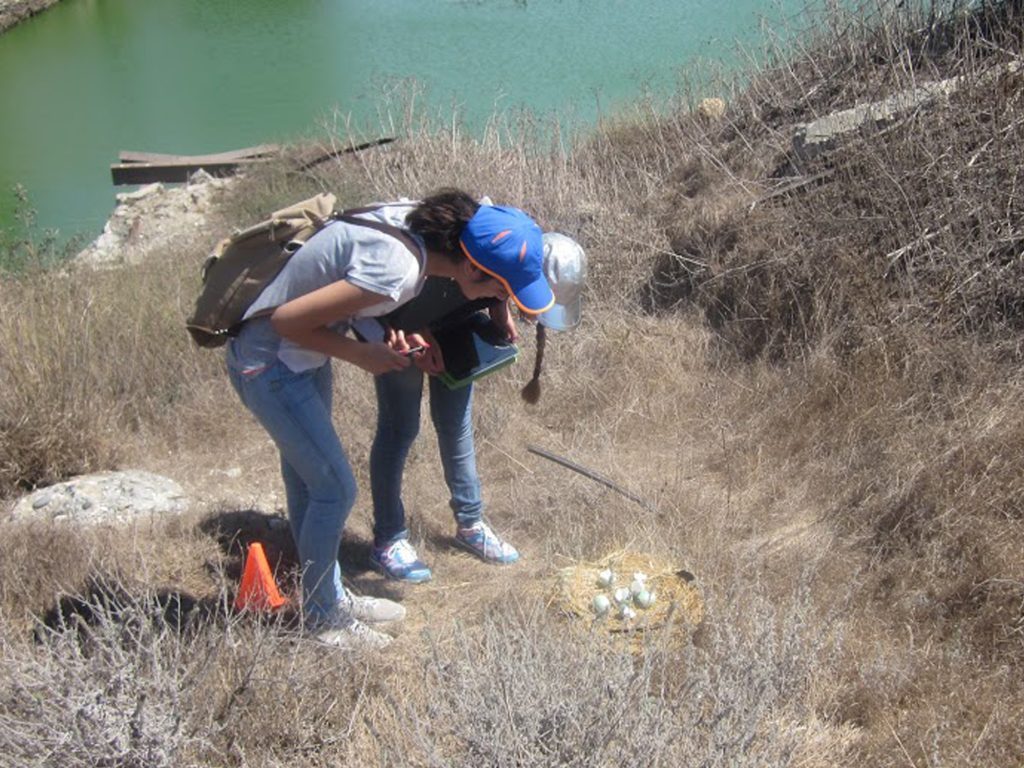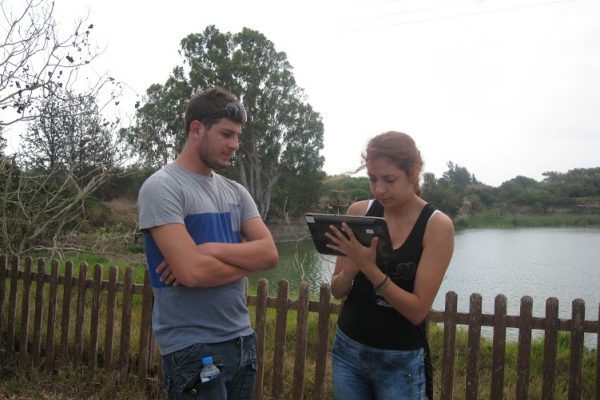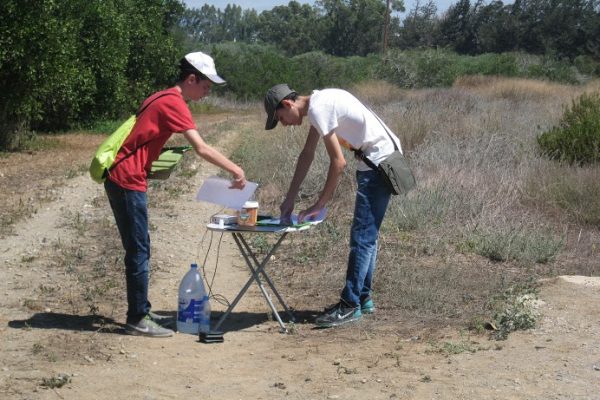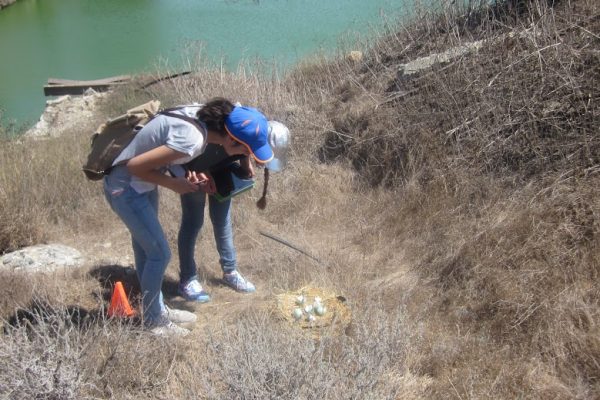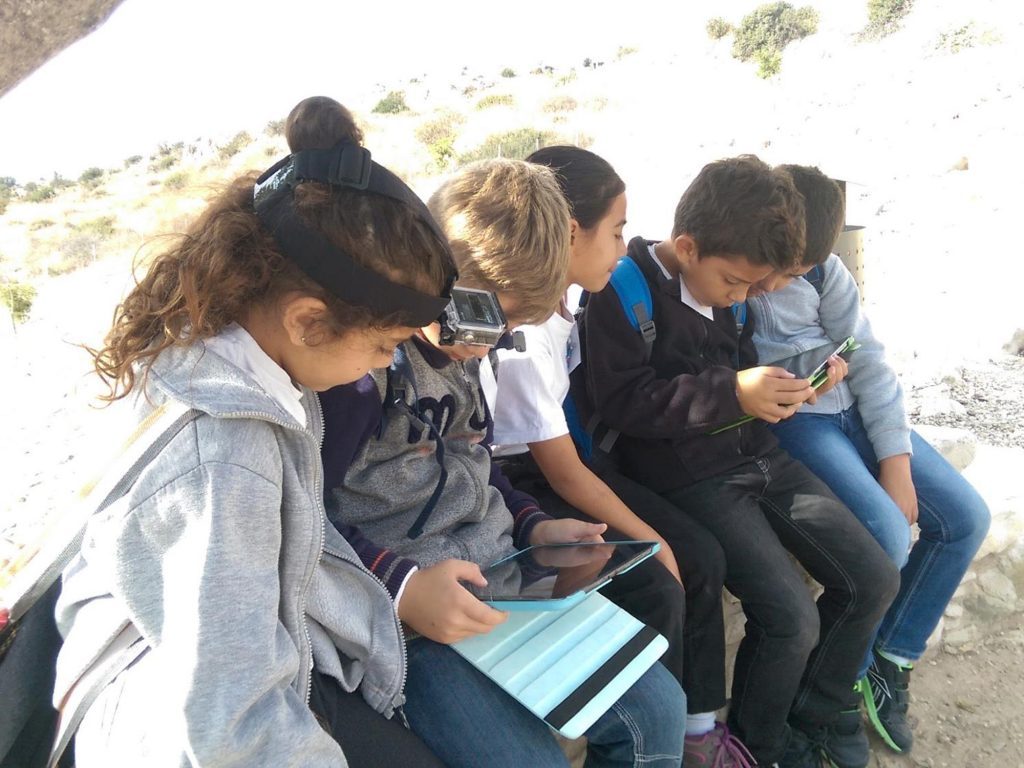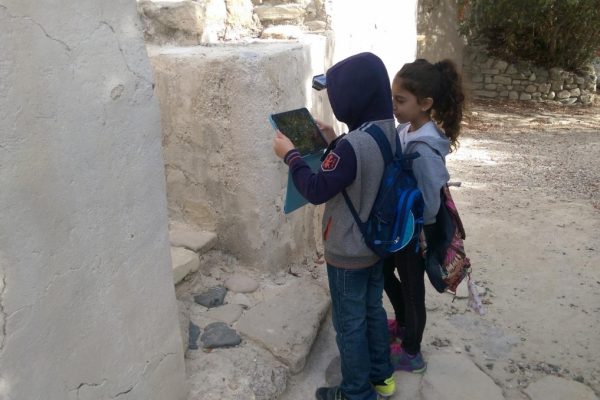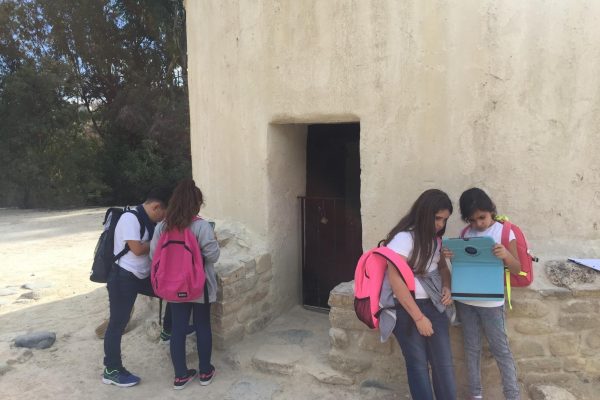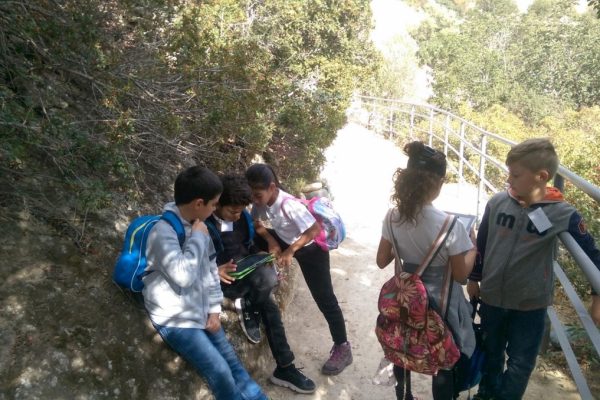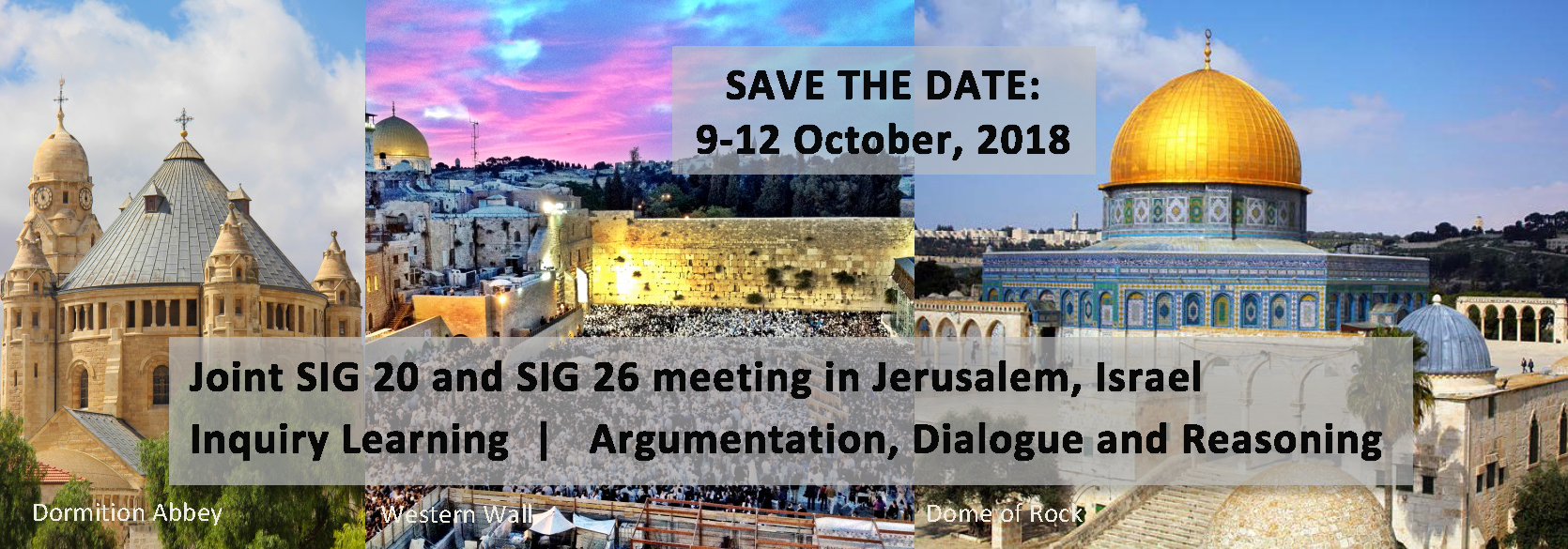
The Media, Cognition, and Learning (MCL) Research Group had a strong presence during the EARLI SIG 20-26 Conference at Jerusalem, held between 9-12 of October 2018. In particular, the conference was attended by Associate Professor Eleni A. Kyza (Coordinator of the MCL research group, Secretary/Treasurer of the EARLI organization), Dr. Yiannis Georgiou (Ph.D. graduate of MCL and JURE coordinator of the EARLI SIG 20), as well as by Mr. Markos Souropetsis and Ms. Andria Agesilaou (doctoral students in MCL).
The coordinator of the MCL research group, Dr. Eleni Kyza, who was invited as a keynote speaker, delivered an inspiring talk entitled “Transforming learning and teaching through inquiry for responsible citizenship”. Her keynote presentation triggered an interesting conversation between the conference participants about citizenship education, the role of learning technologies and designed learning environments, and the contribution of inquiry-based pedagogy to cultivating informed, responsible citizens.
Dr. Yiannis Georgiou gave a paper presentation on how inquiry-based Augmented Reality (AR) field investigations can be enhanced with physical objects, and thus contribute to students’ increased immersion and subsequent learning. This work was a follow-up study, based on his doctoral dissertation findings on immersion in relation students’ learning in AR location-based settings. Finally, Mr. Markos Souropetsis delivered a poster presentation sharing some preliminary findings from his ongoing Ph.D. research. In particular, Markos’ Ph.D. research is focused on the investigation of upper elementary school students’ co-construction of knowledge in non-formal learning contexts, during the collaborative use of an AR learning environment at a cultural heritage site.
For more information about the MCL presentations and research work contact us!

